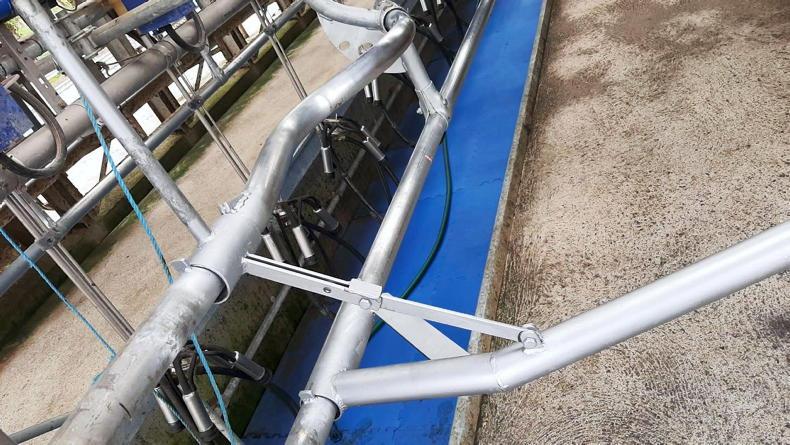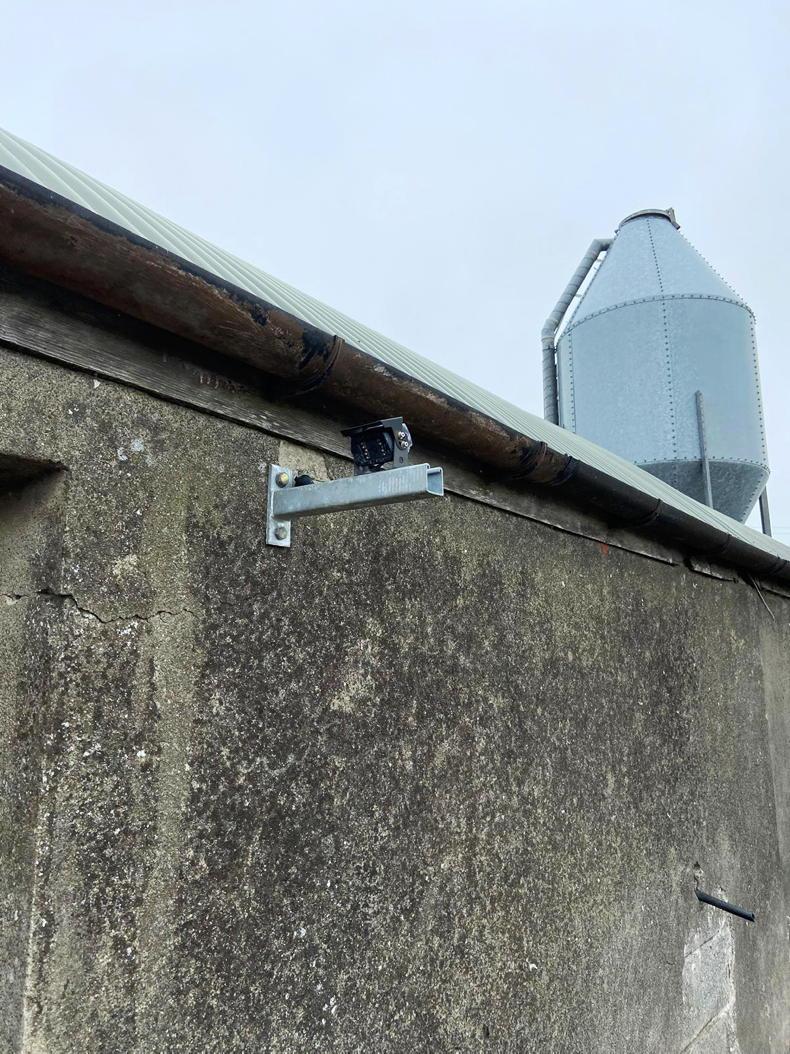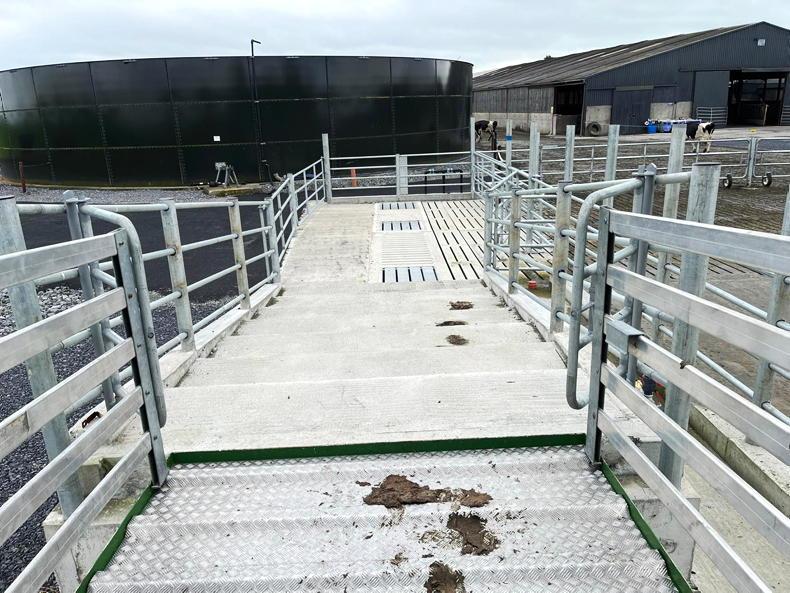Birds can be a big hindrance for many milking parlours. They are attracted to the free source of feed in dairy nuts and shelter.
The mess they leave behind is annoying and unhygienic. Defecating on the milk lines and digging nuts out of the feeders is their biggest nuisance in milking parlours.
In this example, an airline intermittently releases a shot of air. At the end of the airline, a piece of tape waves with the pressure and makes a distinctive noise frightening off any birds.
A timed solenoid on the airline releases a shot of air for 30 seconds every hour, keeping the birds away.

On many dairy farms, it’s usually one crush used to dose and vaccinate all groups of animals. This crush is designed for easy handling of smaller cows, in-calf heifers, and calves.
Safety is crucial when treating animals. The crush’s design ensures the farmer doesn’t need to enter the crush, reducing risk. Its structure allows for efficient and safe dosing and vaccination of all animals, regardless of size.
The gate can swing down when needed and be locked back up for the treatment of much bigger animals.
This crush prioritises both the animal’s welfare and the farmer’s safety and makes the job of dosing calves much easier.

A cheap and effective back gate that does the job. This is a manual back gate controlled by a lever in the pit. Pull it down to open and push it back up to close.
Once the hinge is locked out fully it can’t be opened preventing a cow from lifting it up with their head.
It also allows the farmer greater control in stopping an extra cow from trying to squeeze into the row. Overall, it provides an affordable and efficient solution for managing cows in the milking parlour.

An innovative use of a camera helps draft cows efficiently. A small screen at the front of the parlour is connected to a camera placed at the exit of the parlour, facing the drafting gate.
The farmer watches the screen and, when a cow approaches the gate they pull a lever.



This opens the gate and directs the cow into the holding pen. This setup allows the farmer to manage cow drafting without leaving the parlour.
It enhances efficiency and control, making the drafting process smoother and more cost-effective compared to other drafting options.

Just off the milking parlour holding yard, this Tipperary farmer built a ramp for loading cows. Loading animals can be dangerous, as most animals aren’t used to getting onto trailers or trucks.
The ramp has a gradual stepped incline as far as the floor of the trailer. This makes the process less daunting for the animals. This design reduces stress and risk during loading. The ramp ensures a safer, smoother experience for both the cow and the farmer. When the wheel of the trailer hits the kerb the farmer knows the trailer is in the right position and the ramp of the trailer meets the top of the concrete ramp.
An underground pipe collects the waste from the trailer and pipes it to the slurry tank.









 This is a subscriber-only article
This is a subscriber-only article










SHARING OPTIONS: